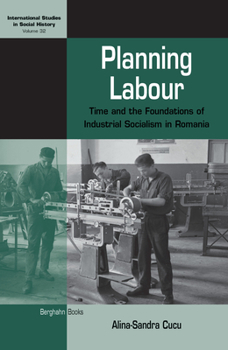Planning Labour: Time and the Foundations of Industrial Socialism in Romania
Impoverished, indebted, and underdeveloped at the close of World War II, Romania underwent dramatic changes as part of its transition to a centrally planned economy. As with the Soviet experience, it pursued a policy of "primitive socialist accumulation" whereby the state appropriated agricultural surplus and restricted workers' consumption in support of industrial growth. Focusing on the daily operations of planning in the ethnically mixed city...
Format:Hardcover
Language:English
ISBN:1789201853
ISBN13:9781789201857
Release Date:April 2019
Publisher:Berghahn Books
Length:266 Pages
Weight:1.14 lbs.
Dimensions:0.6" x 6.0" x 9.0"
Related Subjects
Business Business & Investing Economics History Political Science Politics & Social SciencesCustomer Reviews
0 rating





